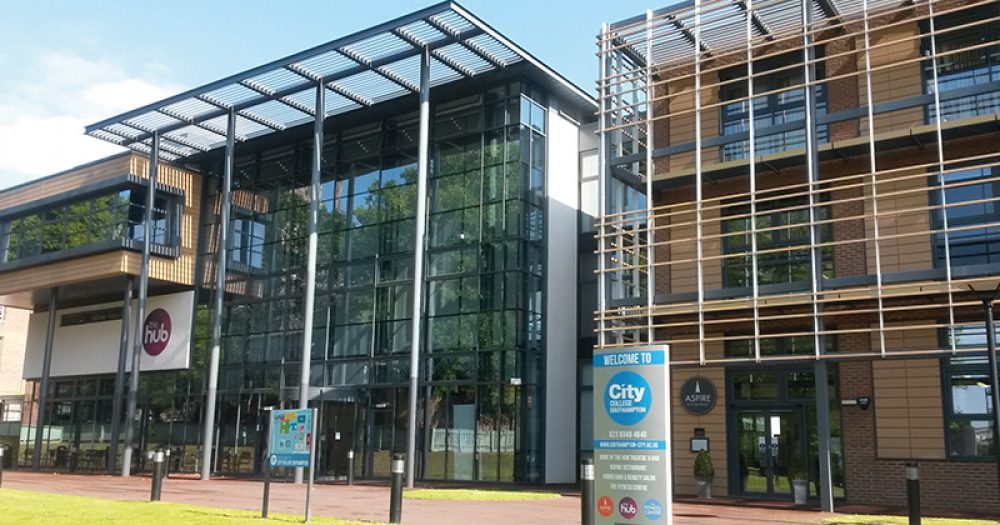These are three steps the government could take to ensure no other college has to endure the protracted process we have, writes Sarah Stannard
As you may expect of the principal of a college on the road to merger for five years now, I have strong views about mergers.
You may suppose that after such prolonged uncertainty I would think mergers are a bad thing ̶ but that’s not the case.
I have worked in colleges (and companies) during and after mergers. Although there are challenges to doing the process well and making the new organisation effective, I think mergers are a positive way to resolve many issues.
That’s particularly true when policy and funding changes mean colleges become too small to exist as individual institutions. Mergers can allow further education colleges to respond to changing circumstances and continue to meet the needs of the communities we serve.
In Southampton and the surrounding area, it has been clear for a long time that the existing further education eco-system is unsustainable.
When I took up my post in 2013, it was in the knowledge that there were a lot of small and medium-size colleges competing in the same area. In fact, there are eight colleges within 15 miles of the city centre.
Local stakeholders agree there are too many colleges close together
Local stakeholders (governors, MPs, the city council and the local enterprise partnership) all agree that so many colleges close together have an overall negative effect – with destructive competition resulting in too many financially weak institutions.
Totton College was the first institution to need significant intervention and since then, City College Southampton and others have needed financial support or FE commissioner intervention.
So the case for City College’s merger within this local ecosystem is understood and supported by stakeholders, the ESFA and the FE commissioner.
Why, then, after five years has it not happened? And how could the situation be improved, so that no other college has to suffer such a protracted process as we have?
To summarise, we have undergone three separate merger proposals. First was a proposal from Solent University, which was refused by the Department for Education because of concerns about the suggested governance model and not being value for money. Second came a proposal from Eastleigh College which was refused as also not being value for money. Most recently a proposal from Itchen College was refused due to concern that it would not create a financially viable college.
A major issue for us has been the very slow pace of the proposal process and decision-making. It was 18 months from the local area review’s recommendation for the first merger to the DfE’s final refusal, eight months from the second and 12 months from the third.
This has resulted in years of uncertainty for staff and students. Will they be here next year, they wonder? Governors, leaders and staff have been astonishingly resilient and in a recent survey, 97 per cent said they are proud to work at the college. But it must not be assumed that this precariousness hasn’t had an impact on us.
Clearly, deciding about merger proposals is complex, but here is what I would do to improve the situation:
1. Ensure strong project management of merger proposals through them being owned by a single DfE team that would be accountable for progress and bringing processes to a timely conclusion.
2. Second a DfE expert full-time (perhaps from the FE commissioner’s team) to the merging colleges to work with them on the proposal. This would ensure the DfE’s success criteria are fully understood by all parties and that there should be no nasty late surprises. More capacity and merger expertise would also be available to the bidding colleges, which they may not otherwise have.
3. Set a clear timeline for the proposal’s submission, with deadlines along the way so all concerned know what progress has been made and can address issues as they arise, not at the last minute.
In the meantime… I look forward to our next merger being swift and positive.









Why can’t you see the wider perspective on your point about small colleges being unviable due to competition? Incorporation and the pseudo-marketisation of FE has patently failed: those of us who still teach and have been in FE for more than a decade can clearly see that our ability to teach and assess effectively has been undermined, regardless of (and in fact because of ) the quality, accountability, data and funding regime – a fake market with fake measures, encouraging fake performance. What value for money has the public gained since the end of LEA oversight so long ago?Why compete for an ever shrinking cake of public funding? The cynical might point to the fact that so many colleges servicing interest on large bank loans equates to a transfer of public money to private (bank) coffers…. And gov.uk’s own report on the impact of college mergers (sept 2019) does not provide any evidence for positive outcomes to the recently imposed mergers – mergers now bearing their rotten fruit; site closures, most recently here in the midlands at Malvern. The 6th richest country in the world should be able to afford local colleges. Lecturers in the classroom know that their job, fundamentally, is to provide learning opportunities to their students , we are not at all concerned with profit, or market share and rightly so !